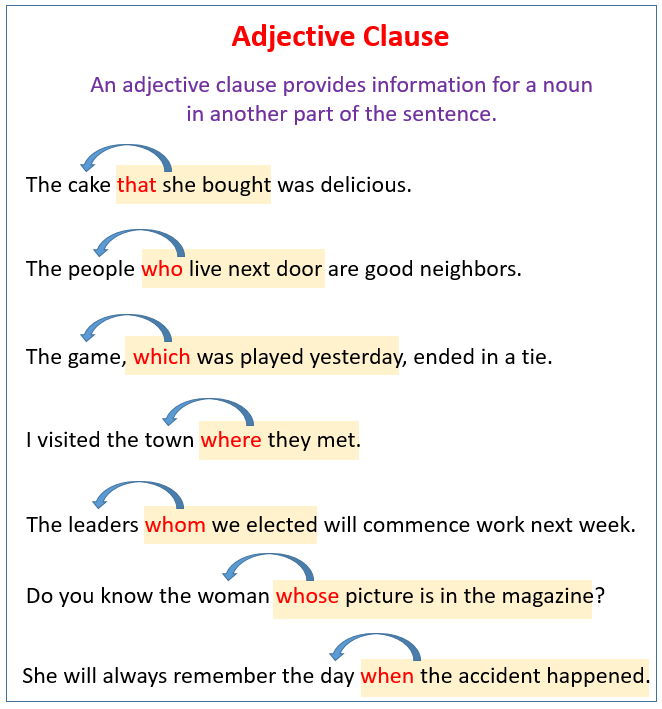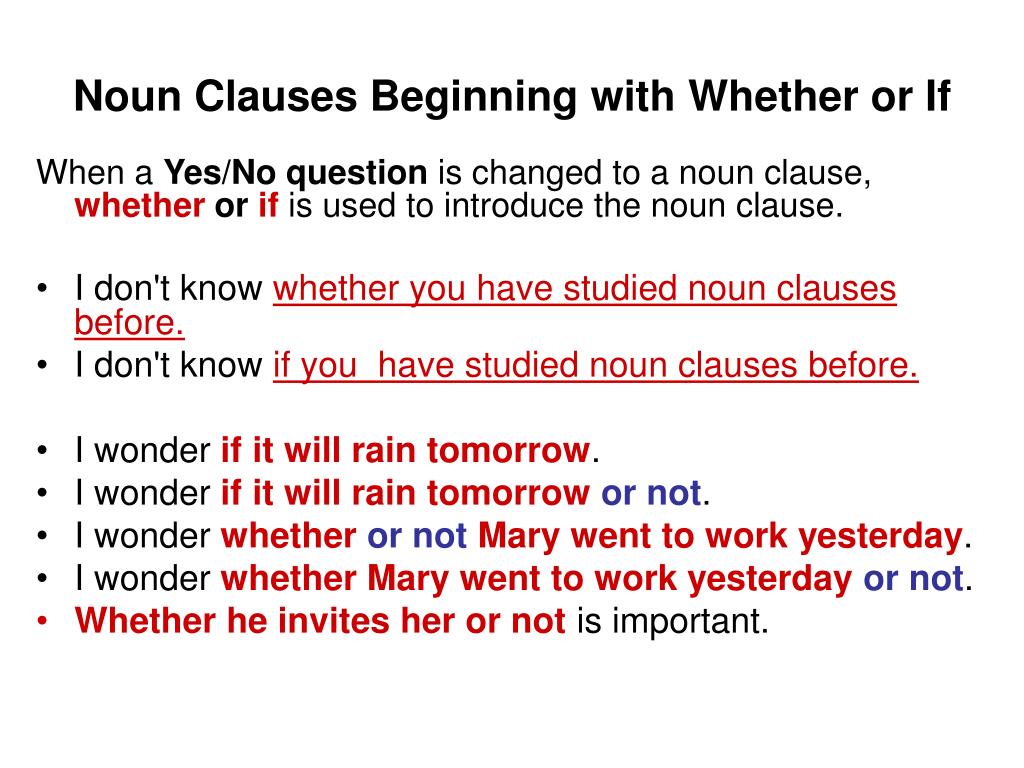Examples Of Noun Clause / PPT - Complex sentence with noun and adjective clauses ... / Know, believe, think, realize, feel, hope, wish, understand, see, notice, find, discover, hear, listen, say, tell, ask, request, order, explain, suggest etc.. Study the examples given below. There are a lot of ways that you can communicate and one of it is writing. Could you tell me whether she can help us. Adjective complements often provide a reason why someone or something is a certain way. Learn vocabulary, terms and more with flashcards, games and other study tools.
Something is your business.s vwhatever you do is your business.someone is still in the cafeteria.s vwhoever ate my lunch is still in the cafeteria. Dependent clauses help the independent clauses complete the sentence. The introductory word generally has a grammatical function in the. Learn vocabulary, terms and more with flashcards, games and other study tools. Noun clause (a smaller sentence in a bigger sentence that functions like a noun)this video is about:

Noun clauses may be either finite or nonfinite in form.
Buy gifts to whomever you want. He suggested that i should consult a doctor. I don't know who he is. Just like nouns do, a noun clause names people for example, the village where i live is a good place for farming. A noun clause is that contains a finite verb and functioning like a noun within a sentences. I didn't know that he was coming to the party. Study the examples given below. Could you tell me whether she can help us. Noun clauses are subordinate clauses or dependent clauses that perform eight grammatical functions. (not a noun clauses often use words such as when, what, why, who and other question words, but the speaker may or may not be making a question. Something is your business.s vwhatever you do is your business.someone is still in the cafeteria.s vwhoever ate my lunch is still in the cafeteria. Noun clauses can play the role of an adjective complement. In this posting i talk about how to form and correctly use noun clauses.
She believed that i was right. That plays the role of a noun. What is a noun clause? Note that a noun clause cannot stand alone. A noun clause functions as a noun, which means it can be a subject, direct object, indirect object, object of a preposition, predicate nominative, or appositive.

As a noun clause does the work of a noun, it can be subject to a sentence, object of a transitive verb, object of a preposition, apposition to a noun, or complement to a linking verb.
Noun clauses consist of a clause preceded by a subordinating conjunction. • try the free mathway calculator and problem solver below to practice various math topics. She believed that i was right. A noun clause is a dependent clause that acts as a noun. I know that the storyis true. Check out our page and find our noun clause examples and learn how to weave a noun clause into your own writing. Noun clause (explanation with examples). Noun clauses may be either finite or nonfinite in form. The download at the end will give you additional practice using noun clauses. In this posting i talk about how to form and correctly use noun clauses. There are a lot of ways that you can communicate and one of it is writing. A noun clause is a clause (containing a subject and a verb) that can replace a noun. A noun clause is a dependent clause that acts as a noun.
In this article, we are focusing our attention on noun clause. In this posting i talk about how to form and correctly use noun clauses. Know, believe, think, realize, feel, hope, wish, understand, see, notice, find, discover, hear, listen, say, tell, ask, request, order, explain, suggest etc. As a noun clause does the work of a noun, it can be subject to a sentence, object of a transitive verb, object of a preposition, apposition to a noun, or complement to a linking verb. Adjective complements often provide a reason why someone or something is a certain way.

Noun clauses are subordinate clauses or dependent clauses that perform eight grammatical functions.
For example, if the sentence is whoever is confused can ask me for help, the noun clause is whoever is confused. you could make the sentence janet can ask. A noun clause is that contains a finite verb and functioning like a noun within a sentences. I didn't know that he was coming to the party. I saw how the accidenthappened. There are a lot of ways that you can communicate and one of it is writing. Noun clauses will contain a subject and a verb, but in each of these examples, the italicized noun clause is performing the action of the sentence, functioning as the subject. Whether he's passed exam is still unknown. Noun clause (explanation with examples). Dependent clauses help the independent clauses complete the sentence. Examples of noun clauses:the boy wearing the red hat is my brother.she makes brownies filled with chocolate chips.we see what we want to see.hitting that bump in the road made me fall off the turnip truck.mr. The introductory word generally has a grammatical function in the. A noun clause functions as a noun, which means it can be a subject, direct object, indirect object, object of a preposition, predicate nominative, or appositive. The examples below show how they are used:

0 Komentar